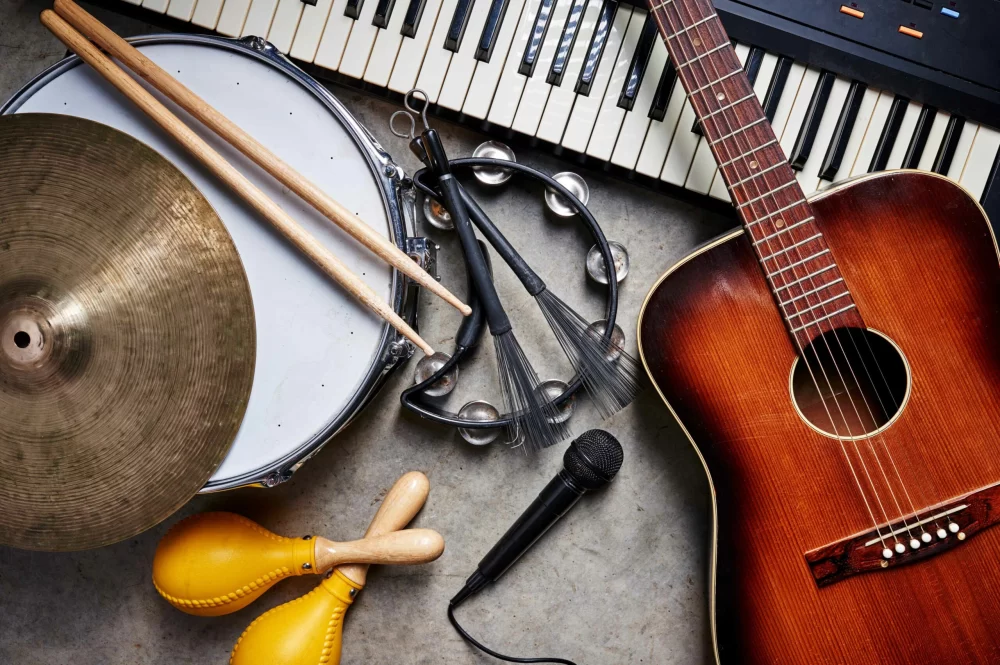
- Health-Benefits-of-Playing-Instruments
- Mental-Health-Improvements-from-Music
- Physical-Health-Effects-of-Instrument-Playing
- Real-Life-Examples-Showing-the-Impact
- How-to-Start-and-Find-Resources
1. Understanding the Health Benefits of Playing Musical Instruments
Is playing a musical instrument good for your health? This question often arises among people considering picking up an instrument or encouraging their children to learn music. The answer is a resounding yes. Playing an instrument offers multifaceted health benefits that reach beyond simply learning a new skill or creating art.
At its core, engaging with musical instruments stimulates various parts of the brain simultaneously, enhancing cognitive function and emotional resilience. This stimulation promotes better memory retention, sharper problem-solving abilities, and improved concentration, which benefit both children and adults alike. Moreover, the act of making music can foster a sense of accomplishment and joy, critical factors for mental well-being.
The health benefits are not limited to mental processes. Physically, playing instruments demands coordination, fine motor skills, and controlled breathing, all of which contribute to overall body fitness and can even aid in rehabilitation for certain medical conditions.
1.1 Cognitive and Emotional Stimulation
Playing a musical instrument engages auditory, visual, and motor cortices in the brain. This triad activation supports enhanced neural plasticity, which is vital for learning and adaptation throughout life. Furthermore, musical practice has been linked to reduced anxiety and depression symptoms by triggering the release of dopamine and serotonin, neurotransmitters responsible for mood regulation.
1.2 Physical Coordination and Motor Skills
The physical act of handling an instrument requires precise hand-eye coordination and posture control. For example, string players develop finger dexterity and arm strength, while wind instrument players train their lung capacity and breath control. These physical exercises subtly improve muscle tone and endurance.
2. Mental Health Improvements from Playing Music
Mental health has become an increasingly important topic, and the therapeutic effects of music have been widely recognized in clinical settings. Music therapy is used to support patients with conditions such as PTSD, dementia, and anxiety disorders. Playing a musical instrument acts as a powerful outlet for self-expression and emotional release, offering relief from stress and mental fatigue.
2.1 Stress Reduction and Emotional Balance
When immersed in playing an instrument, individuals often enter a state of “flow,” a focused mental state that brings peace and fulfillment. This reduces cortisol levels—the hormone linked to stress—helping maintain emotional balance and prevent burnout. Anecdotes from musicians often highlight how their instrument serves as a companion in difficult times, proving its value beyond entertainment.
2.2 Building Social Connections
Joining bands, orchestras, or informal jam sessions fosters social interaction, combating feelings of isolation. These social bonds promote a sense of belonging and shared purpose, which are essential for positive mental health.
3. Physical Health Effects of Playing Instruments
Beyond mental benefits, the physical impact of playing instruments is profound, especially over long-term practice.
3.1 Respiratory and Cardiovascular Benefits
Wind and brass instrument players develop stronger respiratory muscles and improved lung function due to controlled breathing techniques. This can translate into better cardiovascular health and increased stamina.
3.2 Fine Motor Skill Enhancement and Rehabilitation
Instruments like piano or guitar refine fine motor skills through repetitive practice, which has been found helpful in rehabilitation scenarios. Patients recovering from strokes or nerve injuries often engage in music-based therapies to regain dexterity and strength.
4. Real-Life Examples Showing the Impact of Playing Music on Health
Consider the story of Alice, a 45-year-old teacher who took up the violin after experiencing work-related anxiety. Within months, she reported feeling calmer and more focused, crediting her musical practice with improved sleep quality and reduced stress. Similarly, a community center in Chicago observed that seniors participating in group drumming sessions showed enhanced cognitive function and better emotional outlook after six months.
These examples demonstrate the tangible benefits that playing musical instruments can bring to diverse populations, from young learners to the elderly.
5. How to Start Playing and Where to Find the Best Musical Resources
If you are convinced that playing a musical instrument is good for your health and want to begin your journey, the first step is choosing the right instrument that fits your interest and lifestyle. Whether you prefer the piano’s versatility, the guitar’s portability, or the soothing sounds of a flute, starting small and consistent is key.
For those looking for the best instruments, accessories, or instructional services, Beat Trigger offers carefully curated options tailored to all skill levels. Their selection ensures quality and affordability, making the process enjoyable and accessible.
Additionally, joining local classes or online communities can provide structure and motivation, helping maintain steady progress and connection with other music enthusiasts.








